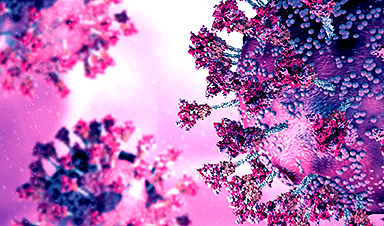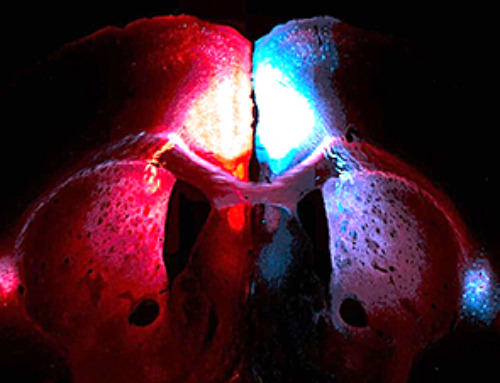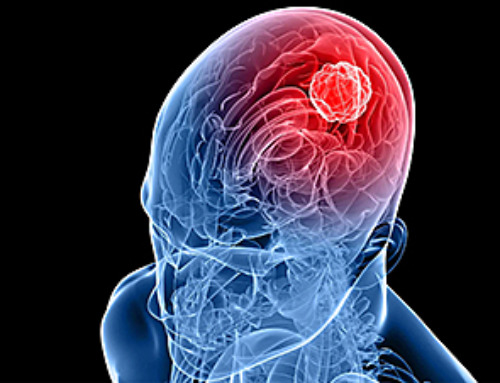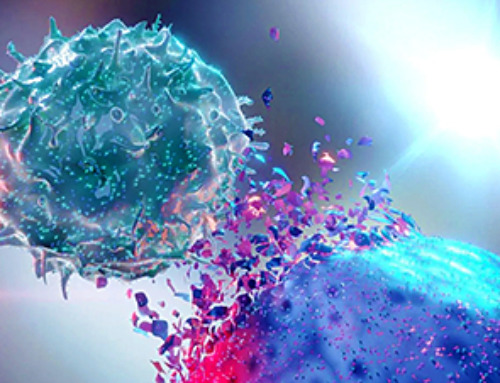According to new research, children exhibit a robust initial immune response to the coronavirus, however, they are unable to transfer this response to long-lasting memory T cells like adults do.
Researchers led by scientists at the Garvan Institute of Medical Research have discovered why children have largely avoided severe symptoms of COVID-19. It turns out that children have a robust initial 'innate' immune response that quickly overpowers the virus. However, unlike the immune systems of adults, children's immune systems do not retain memory of the virus and don't adapt, so when they are exposed to SARS-CoV-2 again, their bodies still perceive it as a new threat.
"The price that children pay for being so good at getting rid of the virus in the first place is that they don't have the opportunity to develop 'adaptive' memory to protect them the second time they are exposed to the virus," says lead author Professor Tri Phan, Head of the Intravital Microscopy and Gene Expression (IMAGE) Lab and Co-Lead of the Precision Immunology Program at Garvan.
The immune system has two modes. The innate immune system is the first line of defense, comprising physical barriers such as skin and mucosal surfaces that block viruses from entering. It is also composed of cells that make chemicals to signal to other cells and ward off the viruses. The innate immune system does not distinguish between one type of virus and another.
The second line of defense comprises B and T cells of the adaptive immune system. These cells have specific receptors that can recognize and distinguish different parts of a virus and generate a rapid response to neutralize or limit it.
Infants start with an immune system blank slate, which has a much higher proportion of naïve T cells, the researchers found. As they move through childhood into adulthood and become exposed to more viruses, the naïve T cells are replaced by memory T cells that are locked into making responses to viruses they have seen before.
"Over time, as you get infections, your immune system becomes more 'educated', allowing you to make a faster immune response that's tightly matched to the viruses that have infected you before," says Associate Professor Philip Britton, pediatric infectious diseases physician at the Children's Hospital at Westmead, and clinical lead in the study. "Children's immune systems move from relying mostly on the innate system to needing the adaptive system as a backup as they grow older and are unable to clear viruses as rapidly."
In the new study, published in the journal Clinical Immunology, Professor Phan, Associate Professor Britton, and colleagues took a deep dive to investigate T cells and cellular immune responses of a small group of children and their household family contacts who had mild or no symptoms from coronavirus (SARS-CoV-2) infection.
The researchers sequenced white blood cell samples to analyze T cells in children and adults at the time of acute infection and one month later.
Because they studied household family contacts who were infected, researchers could control for the impact of genetic or environmental influences on the immune response.
They found that children had many different naive T cells to fight SARS-CoV-2 and made poor memory T cell responses to the virus after they had recovered, whereas the adults had few naïve T cells but made good memory T cell responses after recovery.
Interestingly, the findings point to why older adults can have a kind of immune overreaction to SARS-CoV-2.
"When adults are infected for the first time with SARS-CoV-2, their memory T cells recognize only what they've seen before – like a familiar part of the coronavirus that is shared with the common cold coronaviruses," Professor Phan says.
"This may lock the immune system into a misdirected response that is not specific to SARS-CoV-2. It provides an opportunity for the virus to escape and multiply unchecked to cause more severe symptoms as the immune system ramps up to try and fix the problem."
News
Rejuvenating neurons restores learning and memory in mice
EPFL scientists report that briefly switching on three “reprogramming” genes in a small set of memory-trace neurons restored memory in aged mice and in mouse models of Alzheimer’s disease to level of healthy young [...]
New book from Nanoappsmedical Inc. – Global Health Care Equivalency
A new book by Frank Boehm, NanoappsMedical Inc. Founder. This groundbreaking volume explores the vision of a Global Health Care Equivalency (GHCE) system powered by artificial intelligence and quantum computing technologies, operating on secure [...]
New Molecule Blocks Deadliest Brain Cancer at Its Genetic Root
Researchers have identified a molecule that disrupts a critical gene in glioblastoma. Scientists at the UVA Comprehensive Cancer Center say they have found a small molecule that can shut down a gene tied to glioblastoma, a [...]
Scientists Finally Solve a 30-Year-Old Cancer Mystery Hidden in Rye Pollen
Nearly 30 years after rye pollen molecules were shown to slow tumor growth in animals, scientists have finally determined their exact three-dimensional structures. Nearly 30 years ago, researchers noticed something surprising in rye pollen: [...]
NanoMedical Brain/Cloud Interface – Explorations and Implications. A new book from Frank Boehm
New book from Frank Boehm, NanoappsMedical Inc Founder: This book explores the future hypothetical possibility that the cerebral cortex of the human brain might be seamlessly, safely, and securely connected with the Cloud via [...]
How lipid nanoparticles carrying vaccines release their cargo
A study from FAU has shown that lipid nanoparticles restructure their membrane significantly after being absorbed into a cell and ending up in an acidic environment. Vaccines and other medicines are often packed in [...]
New book from NanoappsMedical Inc – Molecular Manufacturing: The Future of Nanomedicine
This book explores the revolutionary potential of atomically precise manufacturing technologies to transform global healthcare, as well as practically every other sector across society. This forward-thinking volume examines how envisaged Factory@Home systems might enable the cost-effective [...]
A Virus Designed in the Lab Could Help Defeat Antibiotic Resistance
Scientists can now design bacteria-killing viruses from DNA, opening a faster path to fighting superbugs. Bacteriophages have been used as treatments for bacterial infections for more than a century. Interest in these viruses is rising [...]
Sleep Deprivation Triggers a Strange Brain Cleanup
When you don’t sleep enough, your brain may clean itself at the exact moment you need it to think. Most people recognize the sensation. After a night of inadequate sleep, staying focused becomes harder [...]
Lab-grown corticospinal neurons offer new models for ALS and spinal injuries
Researchers have developed a way to grow a highly specialized subset of brain nerve cells that are involved in motor neuron disease and damaged in spinal injuries. Their study, published today in eLife as the final [...]
Urgent warning over deadly ‘brain swelling’ virus amid fears it could spread globally
Airports across Asia have been put on high alert after India confirmed two cases of the deadly Nipah virus in the state of West Bengal over the past month. Thailand, Nepal and Vietnam are among the [...]
This Vaccine Stops Bird Flu Before It Reaches the Lungs
A new nasal spray vaccine could stop bird flu at the door — blocking infection, reducing spread, and helping head off the next pandemic. Since first appearing in the United States in 2014, H5N1 [...]
These two viruses may become the next public health threats, scientists say
Two emerging pathogens with animal origins—influenza D virus and canine coronavirus—have so far been quietly flying under the radar, but researchers warn conditions are ripe for the viruses to spread more widely among humans. [...]
COVID-19 viral fragments shown to target and kill specific immune cells
COVID-19 viral fragments shown to target and kill specific immune cells in UCLA-led study Clues about extreme cases and omicron’s effects come from a cross-disciplinary international research team New research shows that after the [...]
Smaller Than a Grain of Salt: Engineers Create the World’s Tiniest Wireless Brain Implant
A salt-grain-sized neural implant can record and transmit brain activity wirelessly for extended periods. Researchers at Cornell University, working with collaborators, have created an extremely small neural implant that can sit on a grain of [...]
Scientists Develop a New Way To See Inside the Human Body Using 3D Color Imaging
A newly developed imaging method blends ultrasound and photoacoustics to capture both tissue structure and blood-vessel function in 3D. By blending two powerful imaging methods, researchers from Caltech and USC have developed a new way to [...]





















